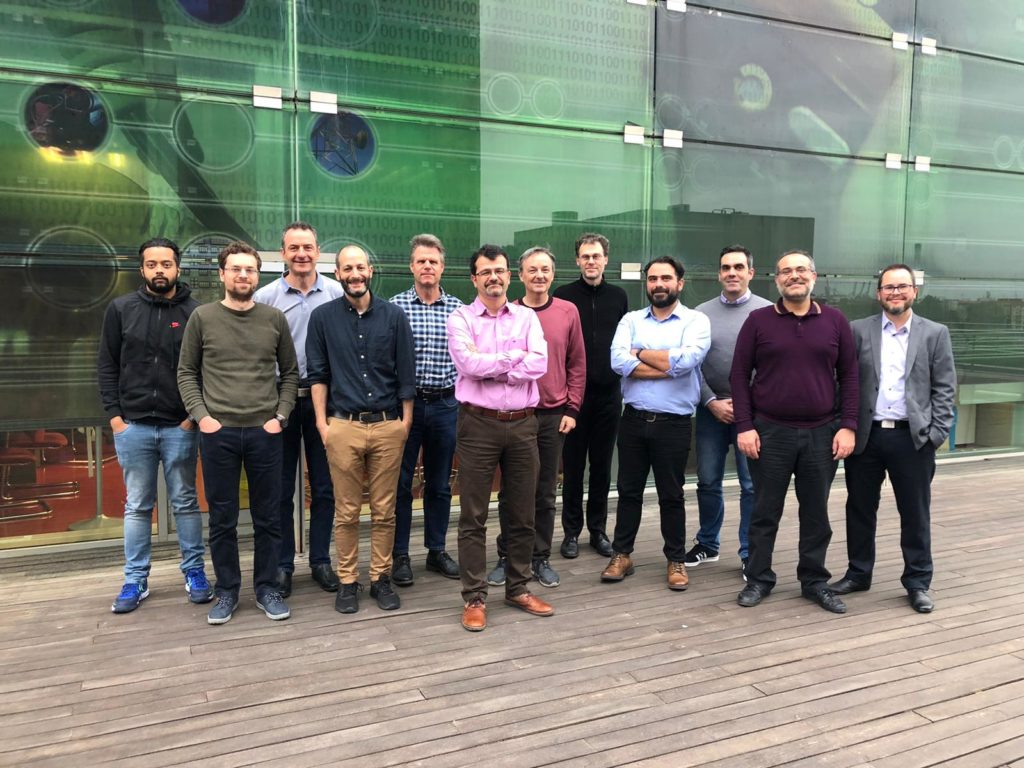EU (February 20, 2020). On 18-19 February, the NEoteRIC Consortium, consisting of nine partners and coordinated by the ITEAM research institute at the Universitat Politècnica de València, launched the project activities during a kickoff meeting hosted at ITEAM-UPV’s premises in Valencia, Spain.
NEoteRIC’s primary objective is the implementation of holistic photonic machine learning paradigms addressing imaging applications in an unconventional approach to provide paramount frame rate increase and classification performance enhancement. The approach is expected to offer orders of magnitude lower power consumption, compared to state-of-the-art machine learning approaches. Such an endeavour will radically affect artificial intelligence and big data analysis in diverse fields with a focus on medical imaging applications. NEoteRIC’s implementation concept incorporates multiple innovations ranging from the photonic device level and extending up to the system architectural level, thus paving new, unconventional routes to neuromorphic performance enhancement. The technological cornerstone of NEoteRIC relies on the development and upscaling of a high speed reconfigurable photonic FPGA-like circuit that will incorporate highly-dense and fully reconfigurable components. NEoteRIC’s “unconventional” chips will be utilized as a proliferating neuromorphic computational platform that will allow optical implementation of powerful non-von Neumann architectures such as Reservoir Computing, Recurrent Neural Networks, Deep Neural Networks and Convolutional Neural Networks simultaneously by the same photonic chip.
During the lifetime of the project, NEoteRIC Action researchers will test and assess NEoteRIC prototypes in a demanding, high impact application, such as high frame-rate image analysis and aims to push the boundaries of state-of-the-art exhibiting simultaneous high spatial resolution and Gframe/sec processing rate. In this context, NEoteRIC’s technological propostion will unlock unpreceded capabilities in the field of medical flow cytometry targeting the alleviation of the need for extensive data storage and heavyweight off-line processing thanks to the“real-time” data analysis capabilities of the photonic neuromorphic chip. Therefore, Time-Stretch Cytometric modalities will vastly exceed the barrier of 2000cells/second processing rate, minimizing the sample processing time and massive storage requirements without sacrificing accuracy and resolution.
NEoteRIC H2020 Action consists of 9 partners from six European countries -with complementary expertise and roles- coming from high reputation academic and research institutes as well as innovative SMEs. The project is funded by the European Commission with a contribution of almost 4 million euro under the Information and Communication Technologies – Unconventional Nanoelectronics topic.
To find more about NEoteRIC’s news, publications and outputs please visit the official project Web site at: https://neoterich2020.eu/
Contact: Coordinator Prof. Jose Capmany, jcapmany@iteam.upv.es, Technical Manager Prof. Charis Mesaritakis, cmesar@aegean.gr

